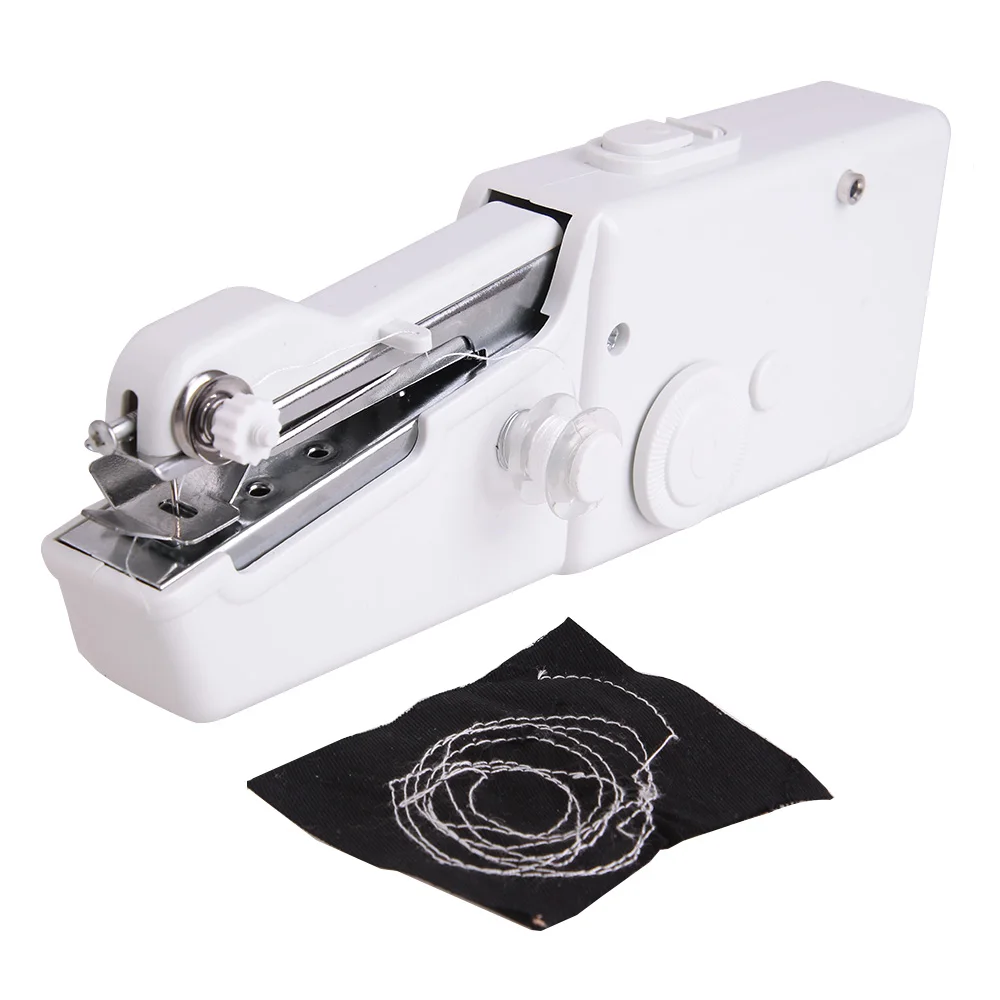⚝ FREE WORLDWIDE EXPRESS SHIPPING ⚝

Portable Mini Sewing Machines
$19.99 USD$28.59 USD
Color: Set 4 - White
Product Details
Portable Mini Sewing Machines: A Comprehensive Guide
This document provides a comprehensive overview of the Portable Mini Sewing Machines, detailing its features, operating instructions, troubleshooting tips, and potential applications. This compact, handheld device is designed for on-the-go repairs, alterations, and basic sewing tasks.
Product Overview
The Portable Mini Sewing Machines represent a lightweight and convenient solution for various sewing needs. Their portability ensures that you can execute small sewing projects anywhere, whether at home, in the office, or even in a vehicle. The machine's compact size and convenient handle make it ideal for carrying around. Built with an ABS material casing, the machine is robust yet lightweight, providing both durability and ease of use.
Key Features
The machine boasts a single-stitch capability, a fundamental yet practical functionality. The unit operates using either a power adapter (6V 600mA) or four AA batteries, enabling customization based on available resources. This flexibility in power sourcing offers a wide range of utility and eliminates reliance on a single power source. Critically, the machine's lightweight design and compact dimensions facilitate portability, making it incredibly easy to transport and use in diverse locations. The incorporation of a pre-threaded needle and bobbins further simplifies the initial setup process, streamlining the user experience for beginners and experienced users alike.
Operating Instructions
Before initiating use, ensure the appropriate power source (either batteries or a power adaptor) is properly connected. Install 4 AA batteries or utilize the DC 6V 600mA power adaptor (not included). Place your chosen fabric on the work surface, gripping it securely with your left hand. Carefully press with your right thumb on the pressure plate; the machine will automatically guide the fabric to the needle. Ensure precise fabric guidance by controlling the left hand, maintaining smoothness in the stitching process. The machine's automatic feed mechanism simplifies this manipulation, ensuring that the fabric is fed uniformly. For single-stitch applications, ensure you manually tie the knot at the beginning and end of the sewing process.
Changing Thread and Needles
To replace thread, manually extract the existing thread spool. Pay attention to the spring mechanism, ensuring it is properly handled to prevent damage. For larger thread spools, use the provided extension spindle to connect it to the spool shaft. Re-thread the new spools, adjusting tension as needed. After changing an existing needle, ensure that its groove faces forward. When installing a new needle, carefully loosen the fixing screw. Insert the new needle; re-tighten the screw.
Troubleshooting Common Issues
If the machine shows intermittent or no sewing, consider the following troubleshooting steps:
- Adjusting Needle Position: Ensure the needle's height is appropriate; it should be neither too high nor too low The needle tip should be clearly visible from the hole. Tighten the screw firmly to secure the needle.
- Fabric Compatibility: Verify that the fabric you are using adheres to the recommended thickness range of approximately 1.8 mm. Strained or problematic sewing could result from using fabrics that are significantly thicker or thinner.
- Battery Issues: Check that the correct battery type is used, avoiding mixtures of different brands or old and new batteries. If batteries are hot, allow them a moment to cool down before resuming operation.
Fabric Considerations
The machine is designed to function efficiently with fabrics approximately 1.8 mm thick. Excessive deviations from this optimal fabric thickness can negatively affect the machine's performance.
Product Variations
The Portable Mini Sewing Machines are available in various configurations designed for differing sewing needs and preferences. Set 1 includes the sewing machine itself, needles, bobbins, a needle threader, an extension spindle, a user manual, and a sample piece of fabric. Additional configurations, such as Set 2, incorporate a necessary EU Plug. Other options add a sewing kit. The options reflect a commitment to meeting a broad range of customer needs and tailoring the product to specific purposes.
Important Safety Notes
When using the machine, exercise caution, and ensure that the fabric is carefully and securely positioned. Avoid using the machine if the batteries or power adaptor are overheating.
Accessories
The machine comes with a black accessory box in particular dimensions.
Conclusion
The Portable Mini Sewing Machines are an efficient and adaptable sewing solution that responds to a wide variety of needs. With flexible power options, portability, and intuitive operation, this machine enables swift sewing and repair tasks wherever mobility is needed.









Black accessory box
Length X width X height: 12X12X2.5CM
Note: the color of all accessories is random.




Worldwide Free Shipping
Over 4 Million Happy Customers
Award-Winning Customer Support
Share on:
You may also like
Recently view
Related Searches
Today Only: Seret privileges for you!
Have a look at our Privacy Policy to understand how we process your data for marketing emails